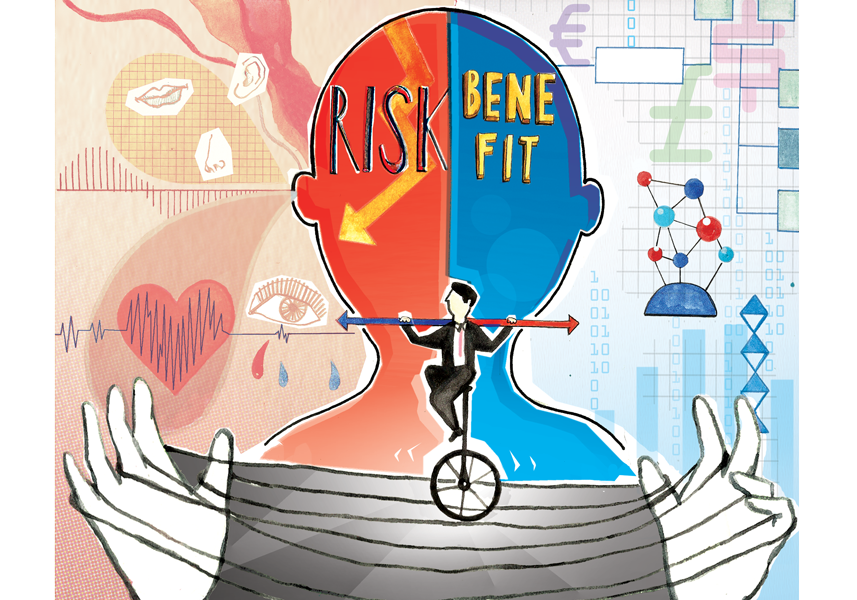The Reason Why Risky Choices Feel More Rational than Safe Ones.

We consider ourselves to be rational beings. We create lists of pros and cons, seek counsel, and envision a smooth and logical decision-making process. But time and time again, we do risk something which appears unreasonable — or, at least, more exciting than the alternatives. Risky choices can be more rational than the safe choice that is easy to predict; it can be gambling on a sports team, playing a computer game with a strategy one has not tried before, or just investing in a risky stock.
This paradox is not an accident of human nature. Still, rather a trait of our brain’s functionality, shaping our behaviour in the digital space, as well as how online platforms subtly consume us.
The Psychology of Risk Perception.
Evolutionarily speaking, human beings are programmed to explore, experiment and even bet, both literally and figuratively, on possible payoffs. Those who had taken a risk and ventured into the unknown, or those who hunted larger game, tended to gain more, even though it was more dangerous than otherwise. That instinct did not die; it only acquired modern forms.
Risky behaviour manifests itself in the modern digital setting, manifesting in matters as simple as financial choices, as well as in the digital context of interactive entertainment services, such as 22Casino Germany. In this case, users are drawn to games that offer the excitement of not knowing who will win, despite the availability of safer and less risky alternatives. Why? One of them is the dopamine loop: as the brain predicts a reward, it also releases dopamine, causing a rush that can be experienced as a compelling prompt to pursue it.
Safe Isn’t Always Rational
The issue is that safety is frequently confused with rationality by humans. The decision to take the less risky alternative can be responsible, but our cognitive biases, such as the illusion of control or optimism bias, make riskier decisions sound smarter.
This is what behavioural economists refer to as the risk-reward trade-off; the payoff of a risky action in our minds usually exceeds the actual payoff of a risk-averse action. Variable rewards, immediate gratification, and online interaction further strengthen this. That is, the brain does not simply compute probabilities–it perceives excitement as a sign that rationality exists.
There is also a factor of decision fatigue. In situations where we repeatedly have to choose between safe and risky options, the mental effort required to compare the safe and unsafe decisions can be so great that we find ourselves preferring a choice with a larger emotional payoff, despite its increased uncertainty. This is the reason why a spin in a virtual casino with high stakes may seem smarter than a low-stakes, predictable one.
The Brain Science of Being Rational.
Rationally, risk is perceived through the brain, as it is an amalgamation of fear and reward. The amygdala registers threat, and the prefrontal cortex assesses consequences. When a dopamine rush is involved in potential profit, the prefrontal cortex can reframe the risk as a logical opportunity, rather than a gamble.
Our brains are programmed, behaviorally, to be pattern-seeking machines, even where patterns are not present. Pattern seeking, overconfidence, and the gambler’s fallacy are all cognitive biases which tempt us into risky behaviour, which we rationalise. It is a sort of brain-approved thrill, a combination of fear and excitement, and perceived logic that may override the safest choices.
DIGITAL Risk.
Sites such as 22Casino Germany can serve as a valuable prism through which this phenomenon can be analysed. Authorised internet-based casinos are also organised spaces that are completely harmless in terms of regulation, but are set up in a manner that creates interaction by offering unpredictable wins and immediate responses. The design alone, including flashing notifications, small wins, and occasional big wins, can make the process of risk-taking more rational than it might otherwise be.
This is not the promotion of gambling. It is about looking at how digital platforms like licensed online casino platforms capitalise on behavioural patterns. The same mechanisms, even without gaming, lead to interaction with stock trading applications, social media, and interactive learning platforms. Variable rewards, immediate feedback, and the dopamine loop all capitalise on the brain’s innate risk-taking bias, enabling adventurous decisions to be right, even when other, less risky options are available.
Expert Insights
According to the views of behavioural economists and neuroscientists, studying this dynamic can help make the decision-making process more conscious. The psychological and neurological mechanisms involved in making risky decisions, as opposed to the inherent rationality of the decision-making, are likely the source of the allure of risky choices.
Practically speaking, the dopamine-induced push to take risks, even in a controlled and safe setting, such as 22Casino Germany, can help users better understand the nature of their own online behaviour, whether that involves gaming or investing. Knowledge of decision fatigue, mental bias, and variable rewards enables us to approach the rush of risk more mindfully, without necessarily losing excitement or interest.

